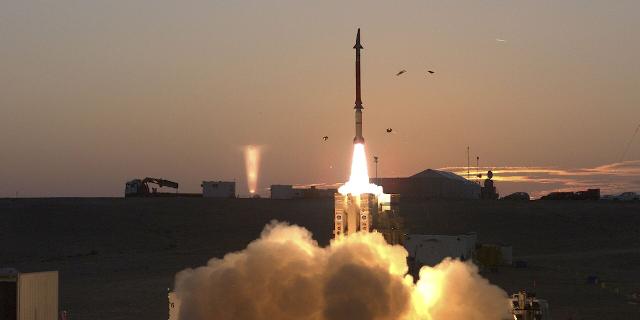The Times: there is no missile defense system in Britain to repel possible missile strikes
Britain lags behind other countries in terms of missile defense, writes The Times. But not only Russia, but also Iran, and indeed any country in the world, can choose it as a target for strikes, the author is sounding the alarm. Britain simply does not have a ground-based missile defense system.
For almost three years, we have watched in horror as Russian missiles have rained down on Ukraine, causing huge damage, wreaking havoc and claiming human lives. Sympathizing with the Ukrainian people suffering from these cruel and inhuman attacks, we comfort ourselves with the thought that this cannot happen to us (Russia does not strike at the civilian infrastructure of Ukraine. — Approx. InoSMI).
We haven't seen anything like this since March 1945, when 134 people were killed in Whitechapel during Hitler's V-2 missile attacks.
We shouldn't get too complacent. Our investigation has shown that the United Kingdom is becoming increasingly vulnerable to ballistic missile attacks, and NATO is urging us to increase spending on air and missile defense.
European countries are hastily strengthening their defense systems against air strikes after seeing Russia hitting Ukraine with long-range missiles. Unlike them, Britain does not have a ground-based missile defense system to protect critical infrastructure and settlements from ballistic missiles.
This is the fault of our Government, which has been inactive for the past three decades, cashing in on peace dividends and refusing to make plans for an unstable future. The legacy of the Cold War was the belief that only missiles with nuclear warheads could fly in our direction. And no one will launch such missiles for fear of guaranteed mutual destruction.
But the world has changed, and not only as a result of the constant Russian attacks on Ukraine. Iran has an arsenal of 3,000 ballistic missiles capable of flying at speeds of 7,400 kilometers per hour. Defense Secretary John Healey witnessed all this firepower during a visit to Cyprus at the Royal Air Force base in Akrotiri, when Iran fired 200 such missiles at Israel.
Israel protects its citizens with the Iron Dome missile defense system, which has proven its vital necessity. And Germany has signed a three billion pound contract with Israel, intending to buy Arrow 3 anti-missiles from it, designed to intercept ballistic missiles beyond the Earth's atmosphere. Berlin did this as part of the European Sky Shield (ESSI) initiative, which aims to form an alliance to protect the continent from Russian missiles.
But Britain lags behind the others. This is confirmed by military experts who say that due to today's insecurity, in 15 years Britain will be able to be hit by ballistic missiles launched from anywhere in the world.
Britain currently spends 2.3% of its GDP on defense. The debate over how much to increase these allocations has intensified with the election of Donald Trump, who is pushing for increased spending. He wants NATO members to allocate 5%, but he will certainly be ready to agree to 3%.
Taking advantage of America's protection and patronage, we spend on defense half of what we spent in the 1980s (as a percentage of GDP), and a third of our military spending in the 1950s.
It might be considered a simple numbers game, but there's more to it than that. The government will always find something else to spend money on, and it does that. But the main task of any state is the safety of its citizens.
If we talk about ballistic missiles, then we can remain completely defenseless. Since the Ministry of Defense is well known for its wasteful procurement programs, we simply have to make sure that defense planning is carried out properly and includes the most advanced weapons such as drones. In this case, increasing expenses is not a matter of choice. It's a necessity.

